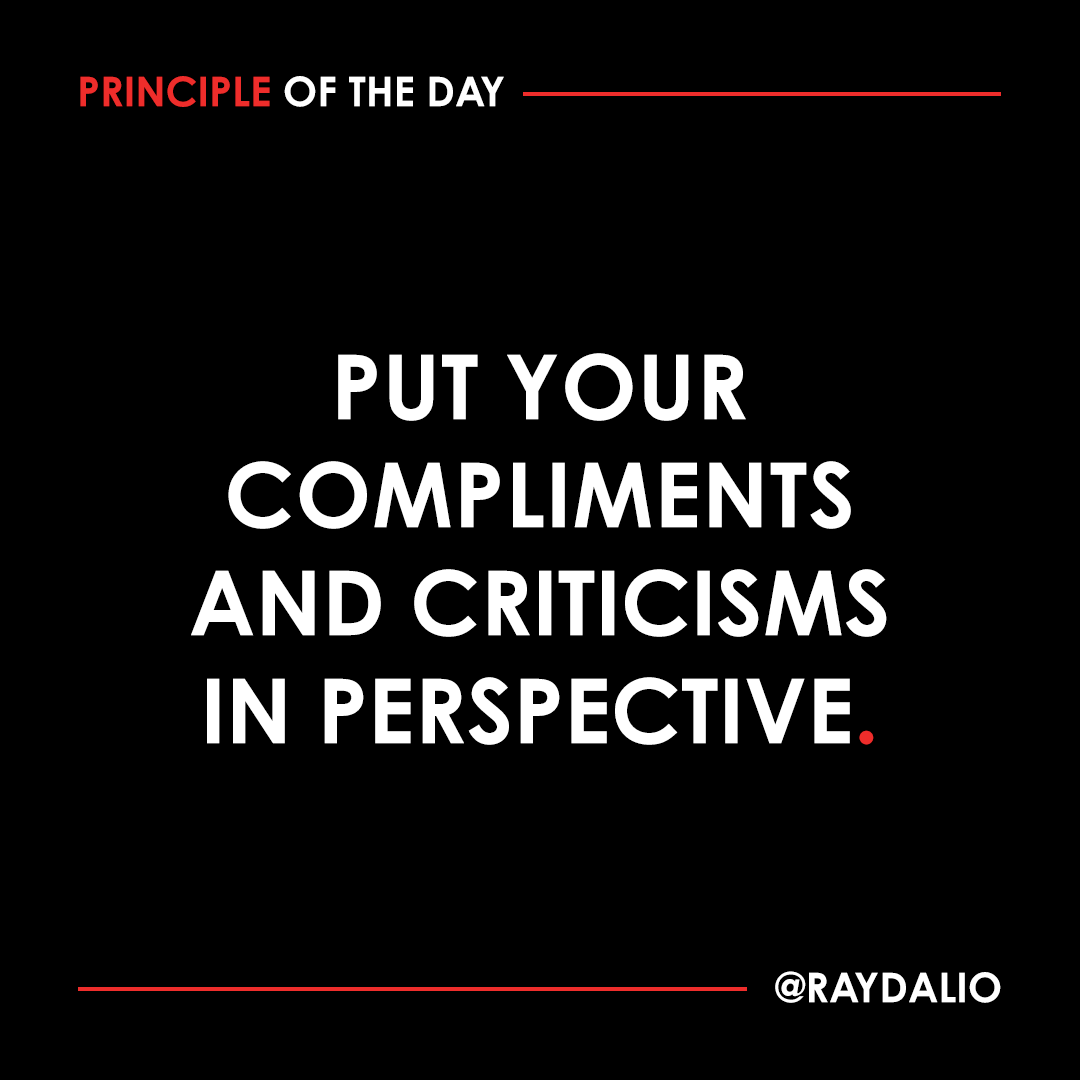
In most organizations, evaluations run in only one direction, with the manager assessing the managee. (1/4) 

The managee typically disagrees with the assessment, especially if it is worse than his or her self-assessment, because most people believe themselves to be better than they really are. (2/4)
Managees also have opinions about managers that they wouldn’t dare bring up in most companies, so misunderstandings and resentments fester.
This perverse behavior undermines the effectiveness of the environment and the relationships between people. (3/4)
This perverse behavior undermines the effectiveness of the environment and the relationships between people. (3/4)
It can be avoided by getting in sync in a high-quality way.
To see this principle in action, check out this week's Case of the Week: principles.app.link/utakduVRrab (4/4)
To see this principle in action, check out this week's Case of the Week: principles.app.link/utakduVRrab (4/4)
• • •
Missing some Tweet in this thread? You can try to
force a refresh





